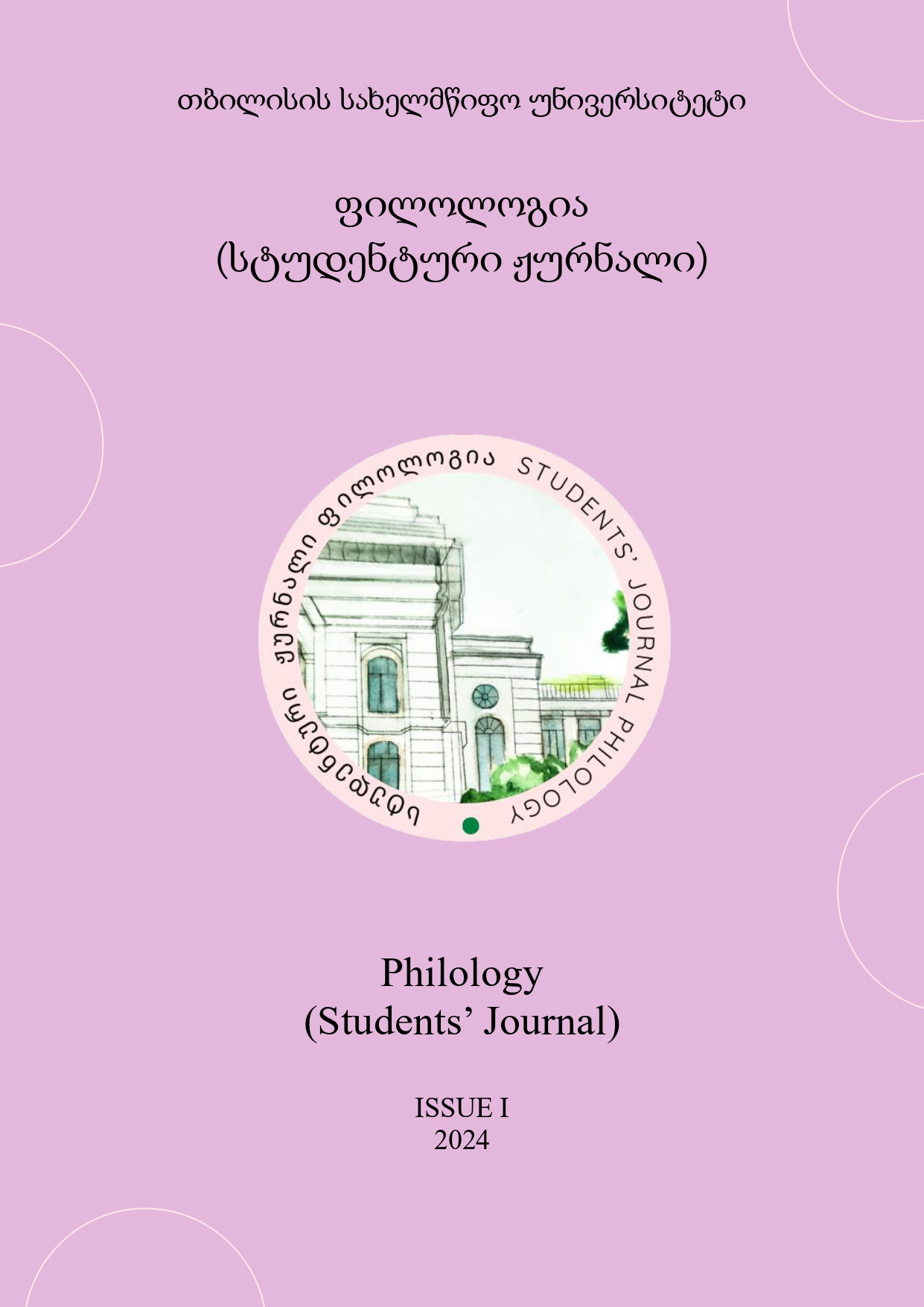ინგლისური ლექსიკური ერთეულის tired და მისი ქართული კორელატების სემანტიკური ანალიზი
საკვანძო სიტყვები:
დაღლილი, ეტიმოლოგია, სემანტიკა, კორელატიანოტაცია
The paper analyzes the origin and usage of the lexical unit “tired” in English and Georgian. Through a contrastive analysis of these languages, the paper focuses on the primary and secondary meanings of this word, as well as its usage in phraseological units. Besides, the research has revealed the current usage of the word “tired” in diverse scientific fields.
In general, exploring the etymology and semantics of any word is a very interesting process, particularly in case of different languages like English and Georgian, where the word under analysis is characterized by diversity of meanings and abundance of synonyms. Analysis of the usage of this word in fiction literature has made the research process even more interesting.
Discussion and comparison of the semantics of the word “tired” and its Georgian correlate has revealed similarities and differences in the semantic nuances of the word in the two languages under analysis.
წყაროები
Ginzburg. R.S. (1979). A Course in Modern English Lexicology. Moscow: Vysšaja Škola.
დოჩანაშვილი. ე. (2011). სამოსელი პირველი. გამომცემლობა: „მერიდიანი“.
ნინოშვილი.ე. (1989). გოგია უიშვილი. ამოღებულია: https://mundusi.wordpress.com/wp-content/uploads/2014/02/gogia-uisvili.pdf
ჭელიძე. მ. (1990). „მკვდრის მზის“ ფილოსოფიური საზრისი. ჟურნ. „მნათობი“. თბილისი. N6.
გენია.ჯი: http://genia.ge/?p=34267
კემბრიჯის ონლაინ ლექსიკონი: https://dictionary.cambridge.org/dictionary/english/tired
იდიომების ონლაინ ლექსიკონი: https://englishbyday.com/tired-idioms/
კოლინზის ლექსიკონი: https://www.collinsdictionary.com/dictionary/englishthesaurus/tired
ონლაინ ეტიმოლოგიური ლექსიკონი: https://www.etymonline.com/word/tire
ქართულ სინონიმთა ლექსიკონი: http://www.nplg.gov.ge/gwdict/index.php?a=term&d=17&t=4379
ქართული ენის განმარტებითი ლექსიკონი: http://www.ena.ge/explanatory-online
ქართული ლექსიკონი: https://www.ganmarteba.ge/


